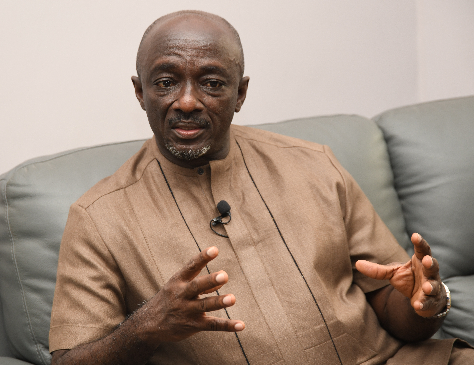
SOEs must contribute 30% to GDP — SIGA boss
The government expects all specialised entities, including state-owned enterprises (SOEs), to contribute 30 per cent to the country’s annual GDP, the Director-General of the State Interest and Governance Authority (SIGA), Edward Boateng, has said.
He said the targeted contribution was feasible, as some state enterprises had already started showing signs of improvement in their operations.
“We’ve made it clear — 30 per cent, one third of GDP — whatever the GDP is, they should be doing not less than one third of it,” he said.
In an interview with the Daily Graphic, Mr Boateng indicated that since assuming office, there had been an increment in the number of SOEs that contributed to the national coffers.
“In 2019, only 19 SOEs contributed to national accounts. I assumed office in January, and this year we were able to move the number to 47. Our goal is to do about 75 next year, so it’s feasible, with your help,” he said.
The SIGA Director-General was briefing the Daily Graphic after a meeting with chairpersons of SOEs and the Finance Minister, Ken Ofori-Atta, in Accra last week.
The meeting, which was dubbed: “A conversation with the Finance Minister”, was a follow-up to an earlier meeting held in April to address the non-compliance of SOEs to the relevant laws and regulations.
It was to create room for frank discussions on the performance of SOEs and their expected contribution to the country’s GDP.
Improvement
Mr Boateng said should the improvement in the operations of SOEs continue, “it will mean we have a national cake and the government can borrow at lower interest rates and the ripple effects will be for the entire country, not only the Ministry of Finance or SIGA”.
He said SIGA was putting in place the right measures that would support the growth of SOEs and ensure that they contributed significantly to the growth of the economy.
“The first is to make people aware of the effects of inaction. We are not the appointing authority; we can recommend to the appointing authority for people to be sacked.
“The other thing is we are doing a naming and shaming. Recently, we published the names of all the entities that met our deadline for the submission of management accounting and those that did not meet our deadline.
“This year, we published only the names of the companies; next year, we will publish the names of the companies, their CEOs and board chairpersons. That is in our mandate to do. Hopefully, with the support of entities and the media, we will be able to put that moral pressure on people to start complying,” he said.
Strong public sector
Mr Boateng explained that there was a pressing need to equip the public sector and use it as the springboard for the growth of the private sector.
He said the private sector could not suddenly become the engine of growth if the public sector was weak.
“In most countries, it’s the public sector that starts, then the private sector gradually takes over. So when we say we want the private sector to be the engine of growth, the public sector has to design it. Unless we design and design it well, how can the private sector be the engine?
“The saying that the private sector is the engine of growth for the economy is becoming a cliché. The expectation of seeing the private sector lead in that charge must be based on a solid foundation. How can the private sector be the engine of growth if the public sector is wobbly and weak?” he asked rhetorically.
Centres of excellence
In the public sector, Mr Boateng said, there should be deliberate efforts to create centres of excellence that could champion the growth of the other sectors of the economy.
That, he emphasised, would also make working for public institutions appealing to attract young, talented and ambitious people who really wanted to chart career paths for themselves and not because they wanted jobs as a means to an end.
